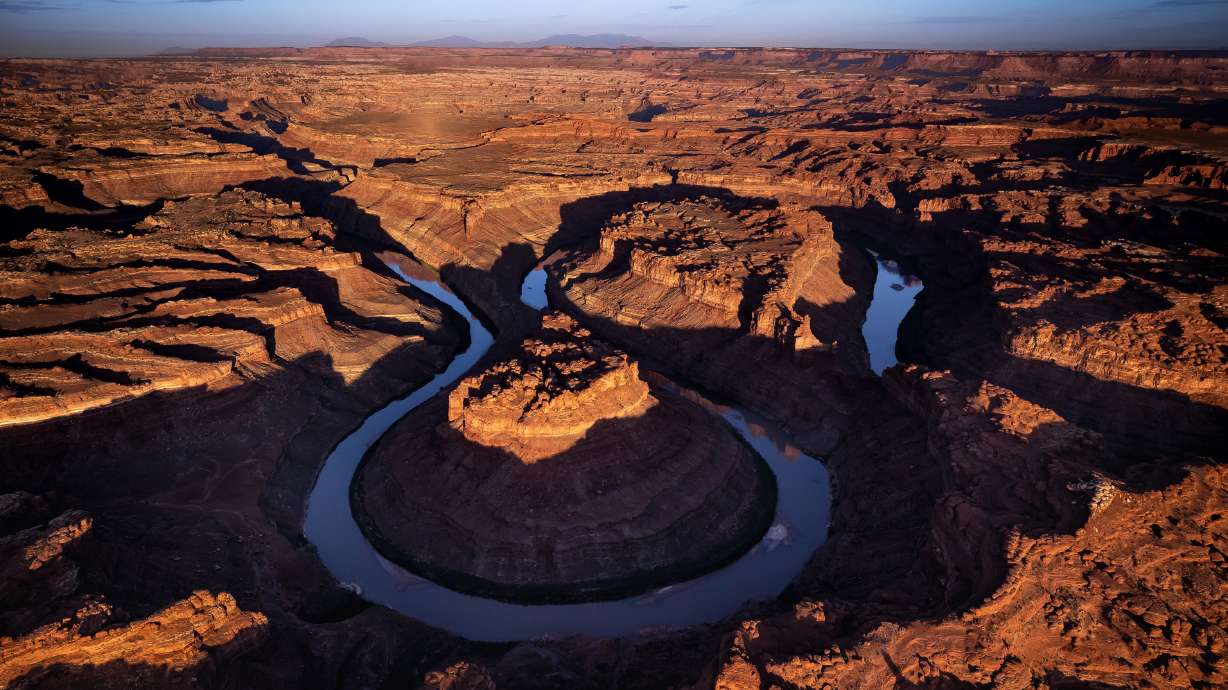Estimated read time: 3-4 minutes
This archived news story is available only for your personal, non-commercial use. Information in the story may be outdated or superseded by additional information. Reading or replaying the story in its archived form does not constitute a republication of the story.
SALT LAKE CITY — Gov. Spencer Cox says he's "optimistic" Utah and the six other Colorado River Basin states will be able to reach an agreement on how to share the river's vital water supply after the Lower Basin states said they've been unable to reach a "consensus" plan that would go into effect in 2027.
The states are expected to meet in the coming weeks while the U.S. Bureau of Reclamation shifts its focus to a post-2026 plan for the Colorado River, Lake Powell and Lake Mead, after selecting a near-term plan the seven states had proposed to the federal government last year.
While the states have different proposals on the table, Cox said he believes the Upper Basin states of Utah, Colorado, New Mexico and Wyoming have had a "far better" relationship with the Lower Basin states of Arizona, California and Nevada over the past few years. He says both sides agree the future of the Colorado River is not a "zero-sum game."
"We know that the hydrology of the river is not what they thought it was going to be 10, 20, 30 years ago and so there are very hard decisions that will have to be made by everyone," Cox said during his monthly news conference Thursday. "But there is a commitment to make those decisions together, to make the right decisions and to think outside of the box."
The Colorado River plays an essential role in the West, supporting about 40 million people between the U.S. and Mexico. The Utah Division of Water Resources notes that the river accounts for a little more than a quarter of Utah's water supply, and directly benefits over half of all residents.
Its importance is why there is a Colorado River Compact in place directing how its water is consumed, one of the most contentious disagreements between river users. However, between the region's two-decade-long megadrought and overconsumption, the future of the river is in question.
The Upper Basin states' plan, sent to the Bureau of the Reclamation on March 5, would set up a tiered system of releases from Lake Powell and Lake Mead based on the water levels of each reservoir. The Lower Basin states' plan, unveiled the following day, suggests that the Upper Basin states should share a bit of the burden so more water can flow into the two reservoirs.
According to Environment and Energy News, a Colorado official called the Lower Basin plan "pretty inappropriate" in a recent webinar, highlighting the differences between the two sides.
Still, bureau officials said this month they expect to release a draft environmental impact statement by as early as the end of this year. Tribal nations and Mexico — entities that also rely heavily on the river — will be included in discussions as the plan is hashed out.
Cox said it's "possible" the bureau will have to step in, but he's hopeful an agreement can be reached without a judge or the federal government getting involved.
He also suggested Utah and Upper Basin states could help support Lower Basin states develop desalination and other new technology projects that could reduce their need for the Colorado River. That's something Senate President Stuart Adams floated when he unveiled SB211, a bill that sets up a new council that oversees how Utah could get more water from out of state.
The governor signed the bill on Thursday, shortly after meeting with members of the media. Ultimately, Cox said his goal is for Utah to land a "fair allocation."
"We've been preparing for this day for several years," he said. "We have some of the best legal minds and scientific minds anywhere in the country working on this for us right now."









